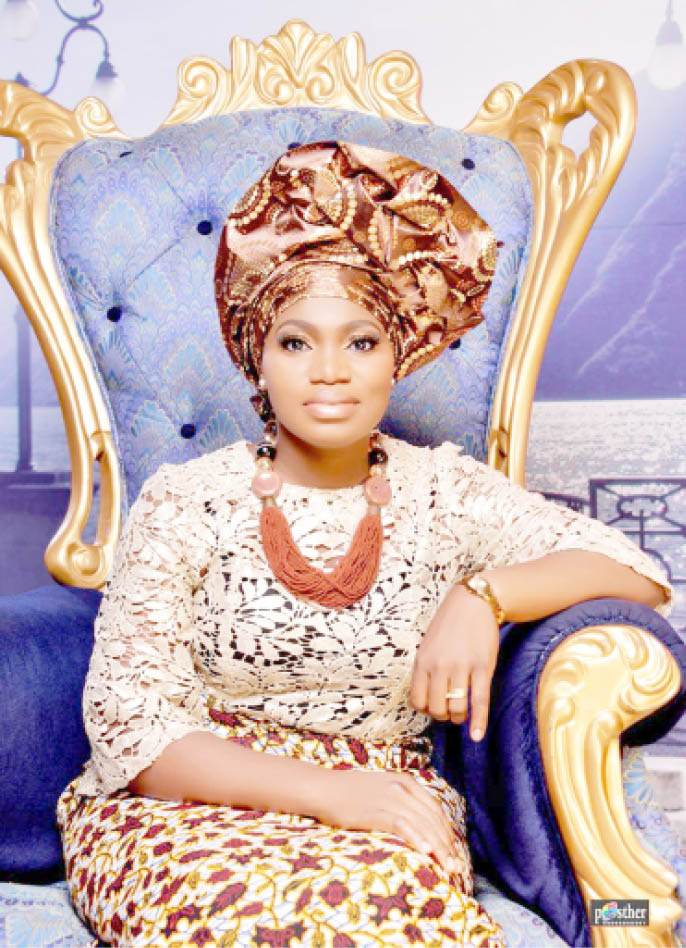Abiodun Essiet is the Special Adviser to the chairman, Abuja Municipal Area Council (AMAC) on ICT/Civil Societies and Donor Agencies. She is a gender advocate, women leader of Nigeria Women Trust Fund (NWTF) and a public health consultant. In this interview with Daily Trust on Sunday, she speaks on her ambition to run for vice-chairmanship of Abuja Municipal Area Council and the changes she hopes to bring.
Considering your professional background, and the fact that you are a very busy woman in pursuit of different concerns related to your profession, why are you interested in the vice-chairmanship position of AMAC?
As a young gender activist and female politician, I’ve come to realise how difficult it is for women to emerge candidates of political parties and also for women to be included on decision making platforms. Few years back, I contested for a councillorship position and couldn’t get the ticket of my party. However, I gained some experience on what it takes for a woman to run in the patriarchy system of politics. That has been the mainframe behind me running for election because, women are not represented and there’s no gender balance within our decision-making platforms across different levels of government. Another reason that prompted me was when the primary election was concluded for all the political parties last year July; we noticed that no female emerged in the two major political parties in FCT and across the six area councils.
How do you hope to cope since you would be faced with stiff competition with male counterparts?
We are working towards continuity of governance since I have background knowledge as someone who is aware of so many great initiatives that have been handled by the current administration and also in charge of some of these initiatives. This inspired me to run for the position because I understand the current administration and the work they have done which puts me in a better position on how the incoming government can move forward. So far, what I have done is to make sure that I create an enabling environment for what I’m going to be doing as vice-chairman. Also, having a boss who is very accommodating and promotes women by creating a safe environment, gives me the feeling that there will not be any challenge in delivering my mandate.
When you began your career, did you ever imagine that you would run for such a position?
My agenda for joining politics some years back was for me to find my feet in the political system. I wasn’t really focused on winning. For people in the political space, aspiring for office automatically makes you a stakeholder within the party structure. I’ve always hoped to move forward with my political aspiration because women need more representation in the political system. Running for this position will give opportunity to women within my party who are at the local and state levels to become major stakeholders within the party.
If elected, how do you hope to combine AMAC job with your development work as well as public service responsibilities?
Since I joined the government as a public servant, I have been able to incorporate a little of my development work into what I’m doing. My current position as the SA on ICT/civil societies and donor agencies was created because of my experience in development work and was able to bring about development and creating an enabling environment for members of civil societies to work with the government.
As a development expert, I hope to bring about innovative ideas that would bring about positive change in the way we do things. Going in to government will only help to push these innovations to limelight and see how we can all work together to bring about change. I’m also passionate about setting an enabling environment for women in the public spaces whereby they will be a void of any sexual and gender-based violence.
What do you hope to do differently in order to leave your footprints in the sand of time in AMAC, if elected?
So far, I’ve been able to bring about positive change and smarter ways of doing work in the organisation. I was able to sign AMAC into the world smart city expo in Korea, and Abuja was given the opportunity to be the regional office for world smart city organisation. I’ve also signed into world climate change action at the covenant of mayors in the Sub-Sahara, Africa. One thing my administration will focus on is building a database for vulnerable women in Nigeria; also seeing how to push for gender budgeting and generally, I plan to be very gender sensitive in all my dealings at the council. We aim to build structures that will encourage young women to strive in government work such as setting up day care centres at our public institutions. We also intend to give more priority to issues around sexual and gender-based violence within the council.
How do you hope to cope with male chauvinism if you assume office?
This is an issue we have been coping with for a while. I’ve been using emotional intelligence to work with my male counterparts in order to understand them and see how we can work together. I’m used to working in a male dominated field and I’ve come to believe that all it takes is understanding. However, being a young woman and running for this position may be challenging for certain people as they might consider me too young to heed to my authority. Nonetheless, I’m grateful to have a boss who is gender sensitive and with that support, I’m sure there’s nothing I can’t handle.
What particular issues/interests/challenges are agitating your mind that you would be glad to address when you get to the office?
My main challenge which I tend to address is how more women can be included in different appointive and elective positions. I was elected for the vice-chairmanship position because of how good I performed as an advisory. As a gender activist, what I’ve come to notice is that women being appointed into advisory position is an entry point for women to get into governance and politics and it also gives the opportunity for people to see what women can do when in position of authority. I also aim to push government into making sexual and gender-based violence cases a priority. The government needs to put up more structures and measures that will help in reducing the number of sexual and gender-based violence cases. Also, setting up structures that will allow younger women to go in governance and politics; setting measures that will help them build their support system and create balance between their personal and work lives would be my priority.
What do you think is the most significant barrier to female leadership?
I think it will be the patriarchy system which is rooted within our work spaces, both in private and public organisations. Most of our leaders are men and for a woman who assumes a leadership position, her first thought is to work like the men do even when we know that we cannot be the same. The pressure women leaders go through is because of low participation of women in that position. They are not enough success stories to encourage other women. Also, because everything is set up in a way to favour the men, trying to change things as a woman will be that you are challenging the status quo and many are not ready to accept that change.
What advice would you give to young women who aspire to become female leaders?
What I will say to younger women is to prepare themselves ahead of whatever they want to do. Attend trainings, get mentors that will help you, consult and do research on how to go about whatever it is you want to do; be sure to have a strong support system as you aspire higher. It’s all about balancing and managing resources to get the best results.

 Join Daily Trust WhatsApp Community For Quick Access To News and Happenings Around You.
Join Daily Trust WhatsApp Community For Quick Access To News and Happenings Around You.


